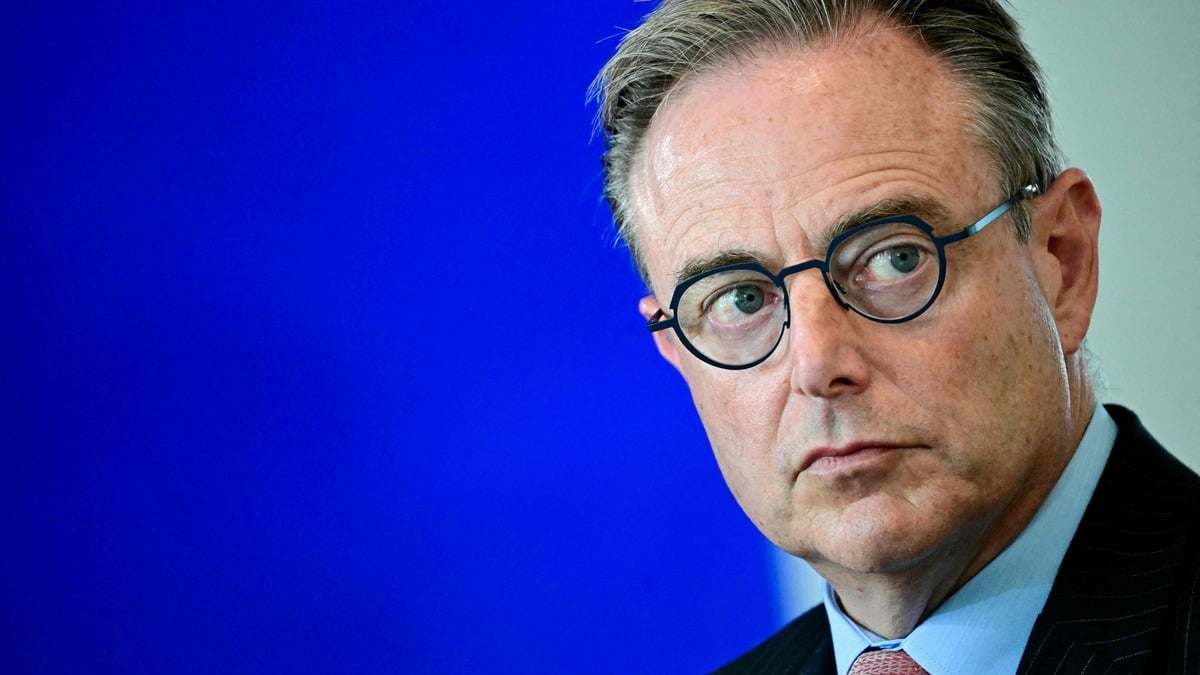The European Union’s plan to use frozen Russian central bank assets to back a jumbo loan to Ukraine is in trouble due to Belgian objections over risk sharing.
Speaking ahead of an EU leaders’ summit in Brussels Thursday, Belgian Prime Minister Bart De Wever warned he would sink the initiative unless other countries addressed his concerns.
De Wever said he wanted “full mutualization of the risk” in case Moscow makes claims on the assets. He also wants legally binding guarantees that member states would contribute if the money has to be repaid and for all countries holding frozen assets to move in lockstep.
“If these three demands, which are quite reasonable I think, are met, then we can go forward,” De Wever told reporters. “If not, I will do everything in my power at the European level, also at the national level, politically and legally to stop this decision.”
During a debate among the bloc’s leaders, Belgium pushed to weaken draft summit conclusions, according to people familiar with the matter. Rather than call on the European Commission to prepare a legal proposal, Belgium wants the bloc’s executive arm to first examine how the mechanism could work “with a view to possible concrete measures.”
Belgium also wants the bloc to tap Russian central bank assets immobilized in other member states, the people said. About €25 billion of assets are frozen in several other capitals.
Discussions are ongoing, said the people.
If the leaders do manage to allay Belgium’s concerns, they are still hoping to mandate the the EU’s executive arm to move straight to presenting a legal proposal for the plan.
Belgium has come under growing pressure to relent as the EU leaders work to reach a political agreement to use the assets to guarantee about €140 billion ($162 billion) in fresh loans to Ukraine. The money would only be paid back if Russia agrees to pay Kyiv for the damage caused by the war.
The EU has repeatedly said around €200 billion ($232 billion) in central bank assets will remain frozen unless that happens.
Ukraine’s European allies increasingly see tapping Russian assets as the only viable way to continue financing Kyiv in its fight against Moscow’s full-scale invasion, currently well into its fourth year. The bill is growing after US President Donald Trump’s administration halted funding for Ukraine, saying it would only sell it weapons paid for by other western allies.
Two key issues the leaders will have to discuss next are what strings to attach to the loans and whether to force Ukraine to buy more European weapons as the continent seeks to rebuild its defense industry.
They may face a situation where Ukraine has to purchase readily available US weapons for immediate battlefield needs, and only turns to European equipment for longer-term needs.
On Wednesday, Ukraine signed a letter of intent with Sweden to buy as many as 150 Swedish fighter jets, which could be paid for with future loans generated from Russian assets.
Political decision
Belgium has repeatedly voiced reservations about using the Russian assets as the biggest share of the funds sit at Brussels-based clearing house Euroclear. The country is worried about being left on the hook if Russia successfully sues to get the money back. Moscow has said it will retaliate if the assets are seized. The EU plans don’t include seizing the assets outright.
“Euroclear is the only financial institution that offers the windfall profits to Ukraine,” De Wever said. “We know that there are vast amounts of Russian money in other countries who have always been silent about this.”
To placate Belgium, the EU’s executive arm has proposed a “tailored debt contract” with a 0% interest rate to be triggered if Euroclear has to honor any potential future Russian claims. Belgium wants to make sure those guarantees are legally solid.
The EU’s plans are also backed by the UK and Canada, which hold some Russian central bank assets, as well. The UK and several EU countries are also offering to play an outsize role in guaranteeing loans to Ukraine. The US has so far balked at joining the initiative.
De Wever also warned that the move could “backfire” on European companies in Russia. “The member states must understand that if we take Putin’s money, he will take our money back,” he said.
Still, other leaders on Thursday expressed confidence the plan will go ahead.
“Today, we will take the political decision to ensure the financial needs for Ukraine,” said European Council President Antonio Costa, adding that officials would then work on the “technicalities.”
Danish Prime Minister Mette Frederiksen said it was the only alternative to Europeans having to “pay up front.”
